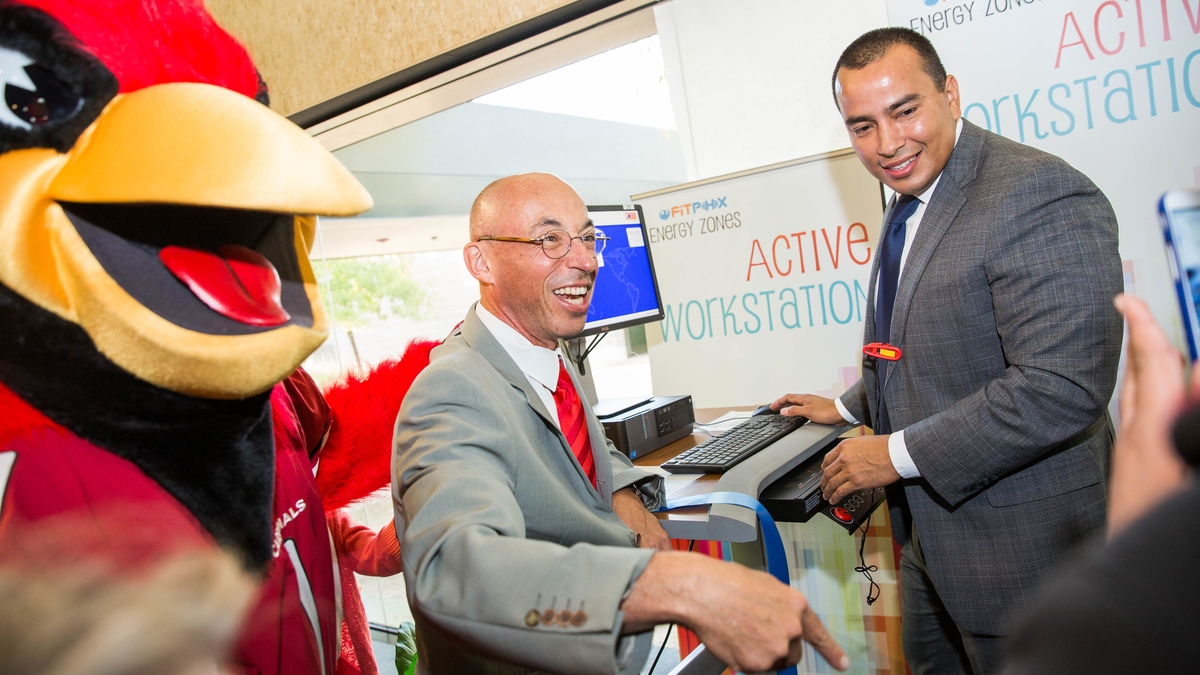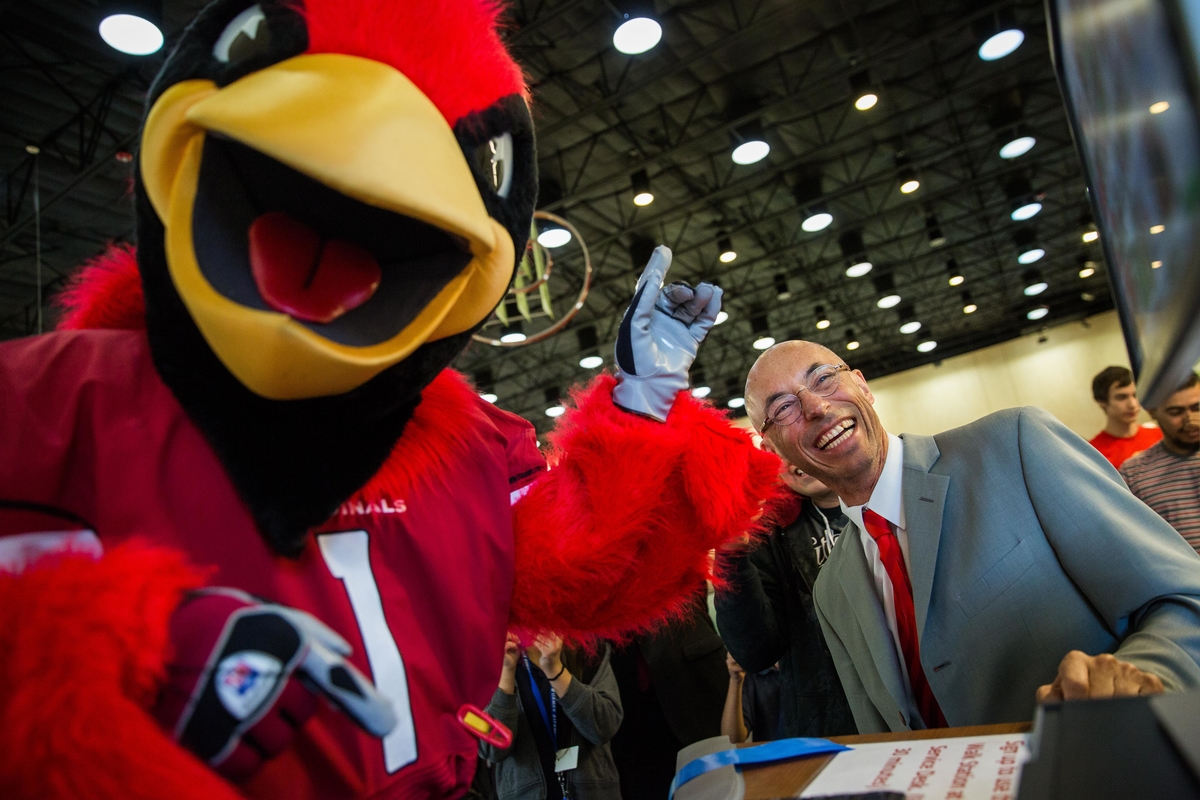There’s a scene in the current movie, “The Intern” where Rene Russo tells Robert DeNiro that “sitting is the new smoking.”
That’s not just clever dialogue. It’s a mantra adopted by fitness researchers who believe that sedentary lifestyles can lead to a plethora of health issues.
And thanks to a grant from a National Football League charity, three Phoenix libraries are starting to exemplify the message that people shouldn’t sit around all day and read books. People at these libraries can now stand, or walk, when reading, researching or clicking through the Internet.
Arizona State University’s Obesity Solutions, in partnership with Phoenix Public Libraries and Parks and Recreations, have created active stations in three public libraries — called the FitPHX Energy Zone — with the goal of making the Phoenix region one of the healthiest in the nation.
“We live in a day and age where it seems every week there’s a new game system or video or some excuse to keep our kids on the couch,” said Phoenix Vice Mayor Daniel Valenzuela. “The City of Phoenix is trying to encourage our residents to live healthier, safer lives.”
The active stations — slow-moving treadmills equipped with a computer and desk — were paid for by the Super Bowl Legacy Foundation earlier this year. The foundation awarded $20,000 to the city to help decrease obesity rates while increasing activity levels of minority middle-school youth from low-income Phoenix communities. According to local and national health statistics, childhood obesity affects more than 12 million of our nation’s youth.
The library is an innovative and educational place to start fighting obesity said Dr. James Levine, a nutritionist with the Mayo Clinic who partners with ASU on the Obesity Solutions initiative.
“This is the best place to do your homework. This is the best place to hang out with your friends. It’s the best place to feed your mind. It’s the best place to move your body,” said Levine, who is also the inventor of the treadmill desk.
“When you’re healthy, you’re happy.”
Big Red, the mascot for the Arizona Cardinals, and Dr. James Levine, of the Mayo Clinic and Arizona State University, show their spirit at the dedication of active workstations in the Palo Verde Library in Phoenix. Photos by Deanna Dent/ASU Now
Some Maryvale residents were all smiles as the Palo Verde Library received an Active Station on Thursday. In addition to Valenzuela and Levine, also on hand were former Arizona Cardinal Robert Tate, a pair of Cardinals cheerleaders, the Cardinals mascot “Big Red,” and a handful of ASU students, who serve as peer mentors in the FitPHX program, a city-wide healthy-living initiative.
Kara Dunleavy, a 21-year-old heath education and promotion major and FitPHXFitPHX is an initiative led by Phoenix Mayor Greg Stanton, Councilman David Valenzuela and Olympic Gold Medalist Misty Hyman. The program encourages residents to lead healthier lifestyles, focusing on childhood and adult obesity, nutrition education, walking, bicycling, the use of public transportation and healthy worksites. FitPHX was created in January 2013. peer mentor, said the program definitely makes a difference.
“When they first came into the program, they were mainly into video games and they’d come to class with the headphones on,” Dunleavy said. “It took a couple of weeks for them to ‘take off their ears’ and start playing the games. But once they did, they no longer brought their headphones. This program is voluntary, they don’t have to come, but they do keep coming back week after week.”
The two other active stations are located in Phoenix’s Harmon and Yucca libraries.
More Health and medicine
Leading the way in wellness: ASU highlighted in The Princeton Review's 2025 Mental Health Services Honor Roll
Being a college student isn’t easy — navigating new routines, people and places can be a challenge, especially if the right support system is not in place. That's why Arizona State University is a…
New Indigenous health dashboard offers robust database for scholars
By Nicole Greason and Kimberly Linn A team at Arizona State University’s College of Health Solutions and American Indian Studies program has created a new tool to aid researchers…
College of Health Solutions program doing its part during Salute to Service
It wasn’t always easy for Marine veteran Chuck Hale when he first returned to civilian life. But he’ll never forget the help he received from a fellow former service member.“The first vet that helped…

